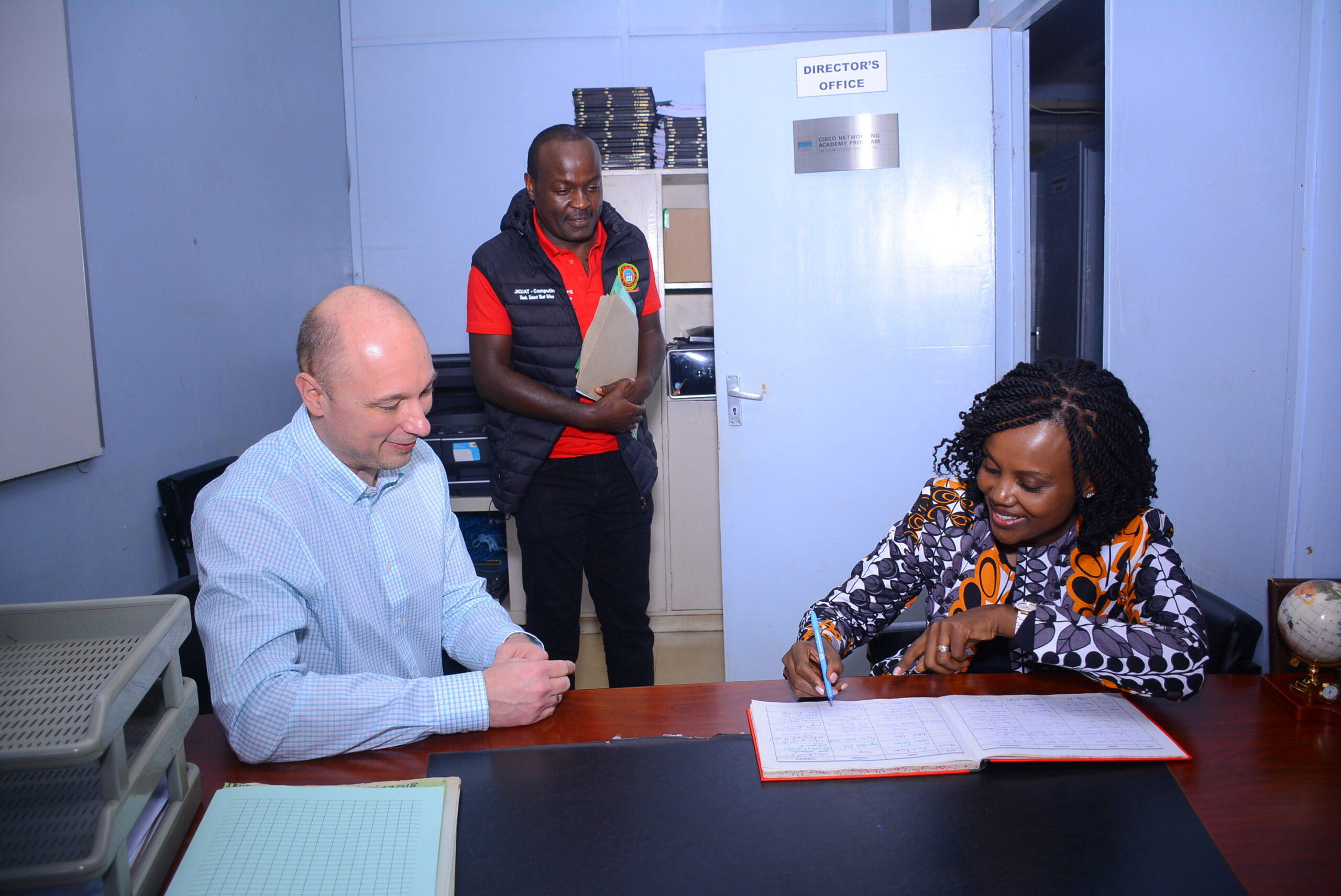advertisement
Microsoft ADC, JKUAT Revamp Computer Science Curriculum

The Microsoft Africa Development Centre (ADC) and Jomo Kenyatta University of Agriculture and Technology (JKUAT), Department of Computing have completed a review of the university’s Bachelor of Science degree in Computer Science and Bachelor of Computer Technology curriculum to make them more relevant to industry demands.
According to Microsoft ADC, the new curriculum will impact the delivery of 128 units within the university’s Computer science and Computer technology courses. The curriculum is expected to come into effect in time for the September 2023 students’ intake.
Microsoft ADC said the curriculum review process is part of its larger goal of catalyzing digital transformation by providing opportunities for skill and practical knowledge acquisition to equip Kenyans to be competitive in the global digital landscape. The updated curriculum will also assist in preparing students for the demands of a rapidly changing technology industry by emphasizing practical skill development and simulating real-world experience within the classroom.
advertisement
In addition to a refreshed approach to traditional technological concepts, the reviewed curriculum will introduce new and innovative concepts, including Applied Machine Learning, Virtual Reality, Quantum Computing and User Experience Design, as well as industry-standard tools at the education level to improve student’s familiarity with them as they enter the workplace.
Speaking about the development, Catherine Muraga, the Managing Director at Microsoft ADC, said: “We are delighted to have partnered with Jomo Kenyatta University of Agriculture and Technology (JKUAT) in the curriculum review process and have our experts contribute specialized knowledge that will allow for tech industry-ready students and use of improved standards of teaching.
Globally employable Kenyans boost Kenya’s attractiveness as a destination for technology companies looking to invest here. The startup ecosystem, local businesses, and entrepreneurs working on transforming technology will also benefit. For Kenyans who choose to take up jobs outside the country and support their families or investments back home, it increases remittances, a crucial driver for foreign exchange.
advertisement
As the continent grows, we anticipate an increasing need for digital skills, especially among youth poised to design incredible solutions to some of the continent’s perennial challenges; this aligns with Kenya’s and Africa’s digital transformation agenda, which requires capacity building of the population for effective uptake of digital services and opportunities.”
As part of the national digitization agenda, the government of Kenya launched the Kenya National Digital Master Plan last year to direct the country’s digital growth trajectory. One of the critical pillars of the master plan is the improvement of digital skills by building the capacity of at least 10,000 ICT professionals with high-level skills.
“The review process has been extensive, with invaluable insights and recommendations from experienced industry experts that will add significant value to classroom instruction. We look forward to providing our students with best-in-class education that integrates practical skills building and theoretical understanding as they prepare for success in the technology industry,” said Dr Lawrence Nderu, Chairman, Department of Computing at JKUAT.
advertisement
Similar curriculum review initiatives will be implemented at other institutions of higher learning as part of efforts to bridge the ever-present gap between industry and academia, particularly in the technology sector.
“We believe that by partnering with educational institutions, from primary school to the university level, we can help create a future workforce equipped with the skills and knowledge needed to thrive in a digital age. We look forward to working with other institutions of higher learning to develop curricula that will improve the whole technology talent pipeline and grow the pool of tech talent in the country to benefit the whole ecosystem,” added Ms Muraga.
Facing personnel shortages to power their companies in Africa, an increasing number of global tech companies in the continent are partnering with the government, learning institutions and other stakeholders to train talent. Earlier this month, Amazon Web Services, Inc. (AWS) and the Information Communication Technology (ICT) Authority, a state corporation under the ICT ministry, announced plans to upskill 10,000 university students using AWS Academy.
Hi,
I am a teacher working with TSC. I hold a Master of Education (CURRICULUM Studies) and Bachelor of Education (ARTS). Kindly allow me work with you on your field work activities.